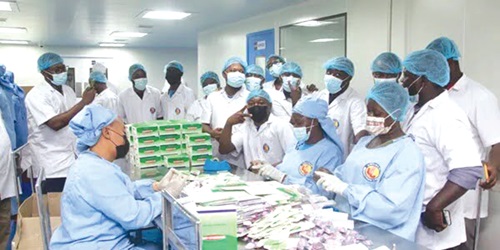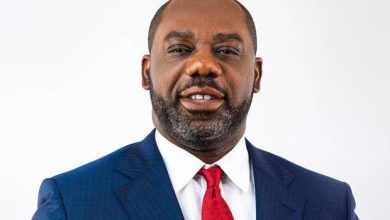
At the launch of his much-publicised 24-Hour Economy initiative on July 2, 2025, President John Dramani Mahama proposed that the newly envisioned 24-Hour Economy Plus Authority should report directly to the Presidency, both during his tenure and under future presidents.
On the surface, this proposition appears logical and strategic; anchoring a flagship national initiative within the highest office conveys commitment and political urgency.
Given Ghana’s long history of policy inertia and bureaucratic delays, the President’s intention could be perceived as a way to insulate this important initiative from red tape, inter-ministerial conflicts and administrative complacency.
However, beneath this well-meaning proposal lies a deeper governance dilemma.
While direct presidential control may enhance efficiency in the short term, it risks undermining the principles of transparency, checks and balances and institutional continuity, which are the cornerstones of sound democratic governance.
Ghana’s political history provides cautionary tales where similar presidentially-managed initiatives faltered or completely collapsed due to overcentralisation and inadequate institutional safeguards.
Previous initiatives
Under President John Agyekum Kufuor in the early 2000s, several Presidential Special Initiatives (PSIs) were launched to industrialise the economy and promote exports.
These projects, overseen directly from the Office of the President, bypassed conventional ministries and oversight mechanisms, aiming for rapid results.
However, most PSIs struggled to gain lasting traction. Factors such as weak stakeholder engagement, a lack of independent oversight and minimal parliamentary scrutiny contributed to their underperformance.
Over time, these initiatives faced downsizing or discontinuation once the president left office, despite significant investment.
A similar fate befell the Savannah Accelerated Development Authority (SADA), established under President John Evans Atta Mills.
While not fully under the direct control of the presidency, SADA enjoyed substantial executive influence. Initially seen as a transformative initiative aimed at bridging the development gap between northern and southern Ghana, SADA soon became embroiled in allegations of mismanagement, waste and weak governance.
Multiple audit reports revealed procurement irregularities and misuse of funds, eroding public trust and nearly collapsing the authority.
Civil society and the media critiqued the initiative for its lack of transparency and accountability structures. Like Kufuor’s PSIs, Mills’ SADA faced out when the Mills-Mahama administration left power.
More recently, under President Nana Addo Dankwa Akufo-Addo, the establishment of the Ministry of Special Development Initiatives, directly linked to the Presidency, raised concerns over duplication and ineffective coordination with existing ministries.
It attracted scrutiny from Parliament and civil society regarding controversial budget allocations, such as inflated costs for minor infrastructure projects.
Ultimately, the credibility of this initiative waned, reinforcing the risks associated with presidential overreach absent adequate checks.
Oversight
These experiences highlight a crucial lesson: initiatives overly centralised under the presidency may derive short-term momentum, yet they frequently lack the resilience, accountability and institutional robustness necessary to endure political transitions or withstand public scrutiny.
It is vital to differentiate between supervision and oversight in governance.
While the President and the Executive branch should provide strategic direction, facilitate inter-agency coordination and eliminate bureaucratic obstacles, oversight should principally remain the purview of Parliament and independent institutions.
Parliament, as the representative body of the people, bears a constitutional mandate to uphold accountability through budget approvals, legislative scrutiny and oversight of government performance.
Assigning the 24-Hour Economy Authority to report solely to the President risks bypassing this critical function and reinforces the excessive powers of the President that Ghana is actively seeking to reform, most notably through the ongoing work of the Constitutional Review Committee.
Such an arrangement not only weakens institutional checks and balances but also fosters perceptions of executive overreach, which can erode public trust and obscure transparency in policy execution.
In a healthy democracy, sound governance depends on a clear separation of powers: the Executive proposes and implements, Parliament scrutinises and holds to account, while independent bodies audit and report.
Concentrating all these functions within the Presidency undermines this balance, opening the door to inefficiencies, resource mismanagement and policy discontinuities with every political transition.
Moreover, one of the most significant risks associated with presidentially owned projects is their vulnerability to political transitions.
Initiatives void of a solid legal and institutional framework may find their continuity and sustainability jeopardised during leadership changes, as priorities shift and new administrations may lack the same commitment to their predecessors’ initiatives.
This creates potential disruptions and instabilities in governance, further complicating the already challenging landscape of policy implementation.
Conclusion
In conclusion, while the 24-Hour Economy initiative presents a bold and forward-looking vision for national development, its proposed governance structure warrants careful reconsideration.
Placing the Authority directly under the President may yield short-term results but undermines long-term accountability, transparency and institutional resilience.
To ensure sustainability across political administrations, the Authority should be established as an independent statutory body, reporting to Parliament and coordinated through the appropriate ministries.
The Presidency can provide strategic direction, but legislative and public oversight must be central.
Broad stakeholder inclusion, from civil society, the private sector, labour and academia, alongside transparent procurement, regular audits and open performance reporting, will help build public confidence and safeguard the initiative’s success for the benefit of all Ghanaians.



